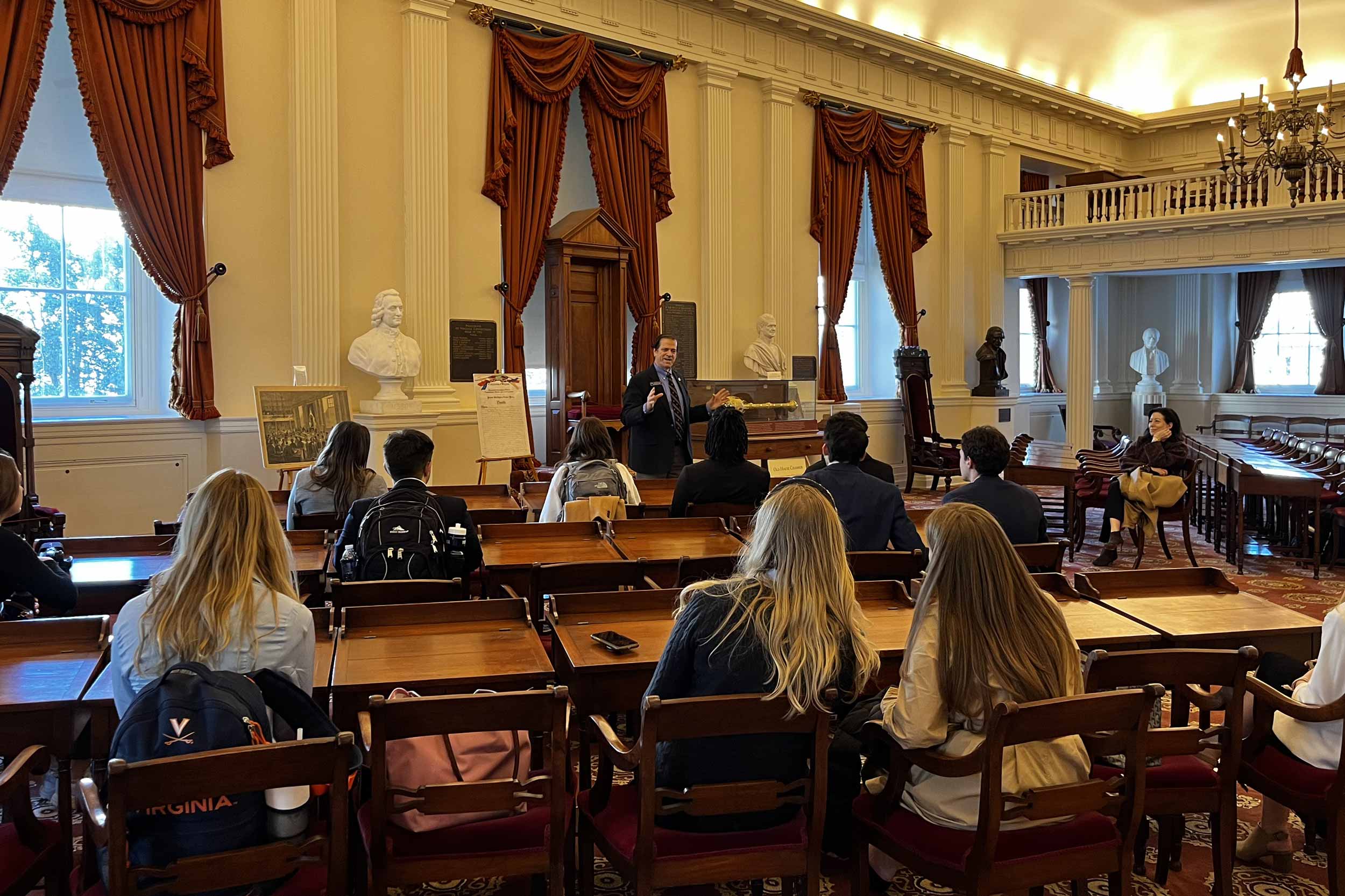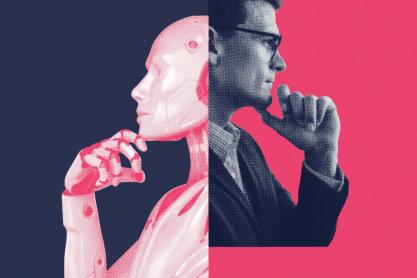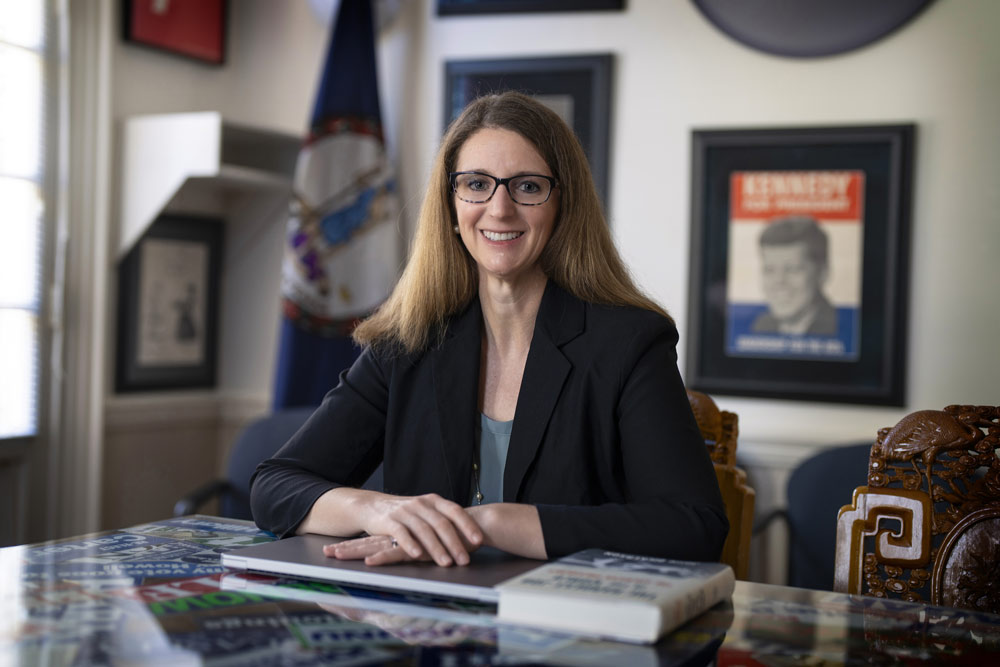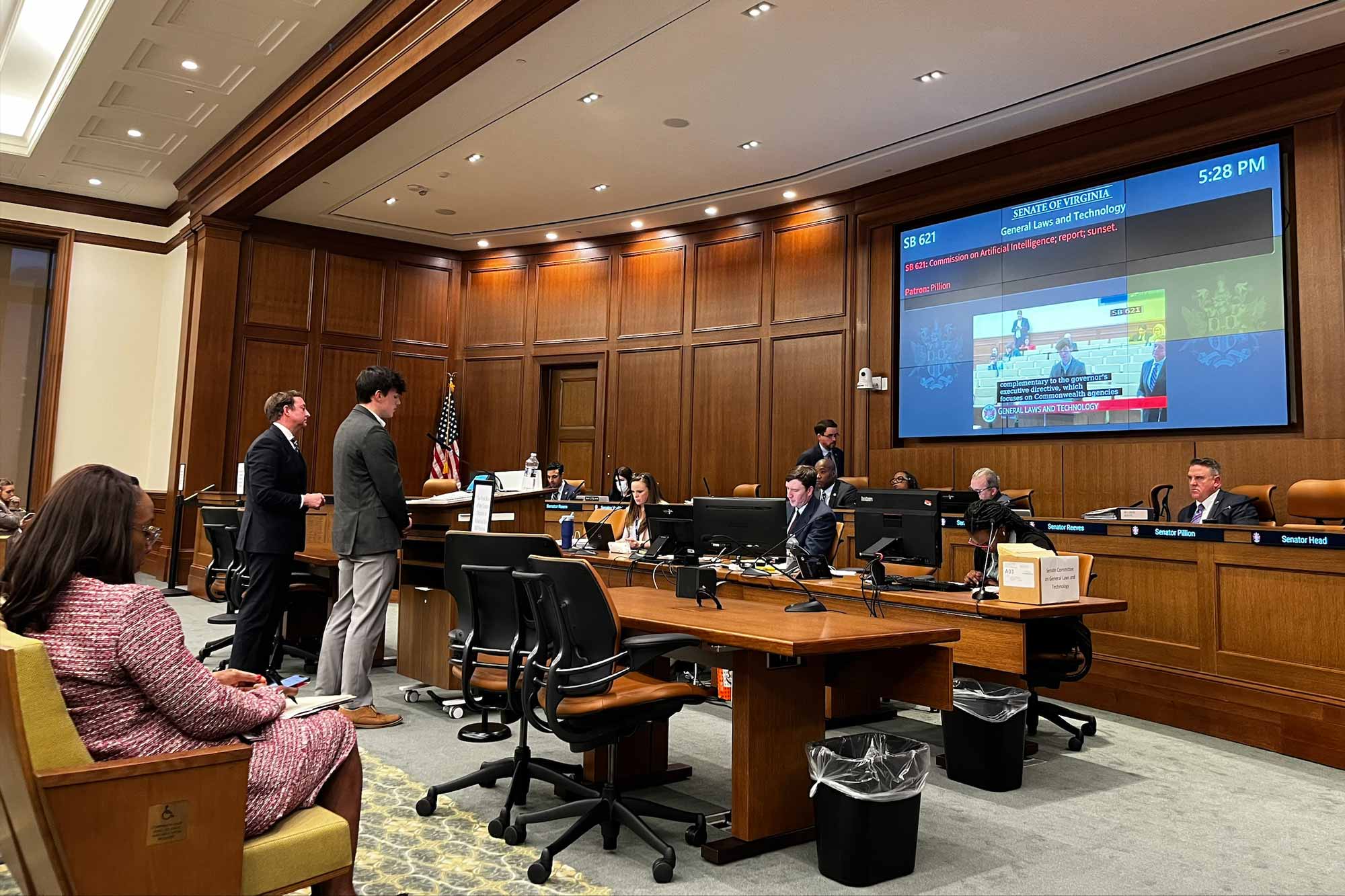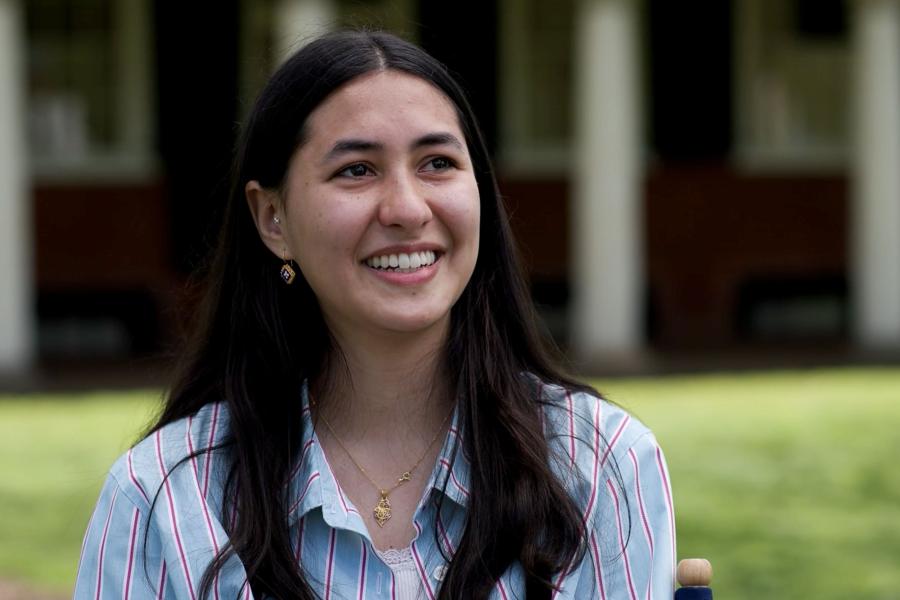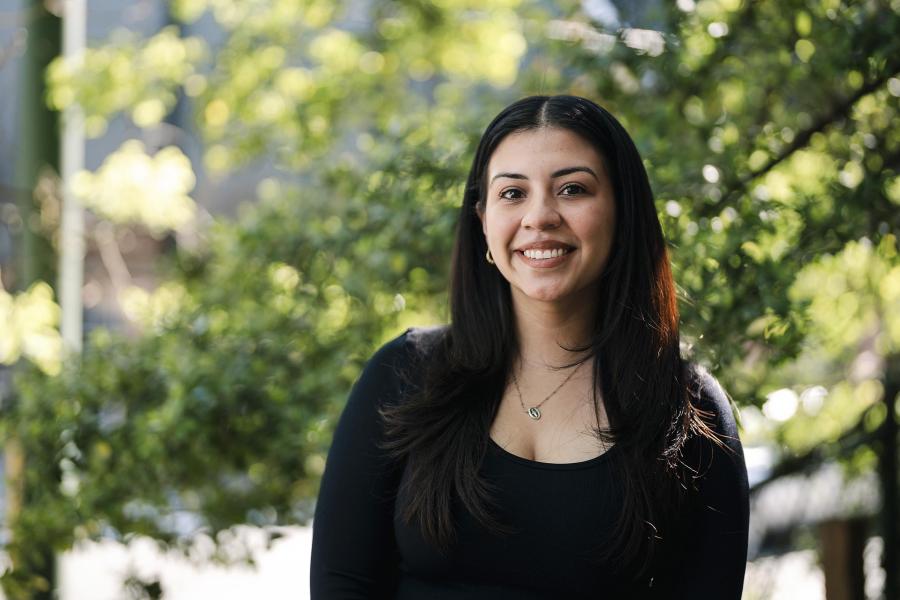By legislative standards, the process was swift. Filed in early January as Senate Bill 621, the bill was quickly merged into Senate Bill 487, which prohibits public bodies in the state from “implementing any system that employs artificial intelligence without initial impact assessments.”
Students worked with Sen. Todd Pillion, R-Abingdon, providing technical research and legislative options, and went to Richmond several times. In January, they advocated and testified in the Senate on their bill’s behalf. In February, they returned to advocate in the House of Delegates.
“This is clearly something the students care about, and they were excited to have a real-world impact,” said Carah Ong Whaley, academics program officer for the Center for Politics, who taught the course. “They reached out to every single House and Senate office. On top of the meetings, they left their research behind for every single legislative aide and member of the Senate and the House of Delegates.”
Isabel Breslin, an exchange student from the University of Edinburgh in Scotland, was part of the team of students seeing the legislative process firsthand.
“The coolest thing about lobby day at the legislature and the role we played was the ability to have a seat at the table and genuinely feel as though you are making a difference with the work you’re doing,” she said. “This is especially important to me as an international student who is unable to vote in national elections.”
“I was interested to see how much individual conversations are valued. Dropping a brief off or sending an email does not have the same effect as a face-to-face discussion,” Breslin said. “I think that gives me hope for the continuation of the human aspect of politics, beyond just a faceless bureaucracy.”
Zach Lederer, a third-year student majoring in government and foreign affairs, said being part of the process made him “optimistic” about U.S. government.
“As someone from Northern Virginia, state government often seems to be overshadowed by the national government, since the latter is in closer proximity. However, so much of what impacts our daily lives is under the purview of individual states,” Lederer said.
“Getting to see the passion from staffers and the commitment from these state legislators, evidenced by their willingness to meet with me despite oftentimes not being a resident of their districts, made me feel optimistic about the governing system in the United States.”
In creating their legislation, the students created official state definitions of key terms, including generative artificial intelligence, after discovering none existed. They created the commission concept after looking at models that other states and government entities adopted to address rapidly developing technology.
The legislation is needed because generative AI is both a useful tool and one that poses significant challenges and can be used maliciously, Whaley said.
“There are lots of questions about intellectual property rights, creative property rights, all these things that AI is generating,” Whaley said. “There are lots of questions about who owns information, images, etc. If somebody puts something up on a social media site, can an AI company go in and scrape that data and then use it? What rights do individuals have as this new technology is developing and being used, especially by corporations? What are the data and privacy considerations?”
Asking questions and seeking answers, students say, is why they lobbied for creating the commission.
“AI can have many uses, such as providing translations for complicated candidates’ guides and legislation that the public may not fully understand. However, it can also pose dangers, such as creating deepfakes to corrupt elections,” fourth-year student Khatoine Taylor said. “This bill will establish a commission to ensure that the threats are minuscule compared to the plethora of promises that it brings.”
The new law would make ethical considerations a top priority for the new commission.
“We have been very adamant in meetings and in legislation, that this can’t be a tech industry-dominated discussion,” Whaley said. “We’re talking about impacts on human lives. We need to have those conversations about what parameters need to be set up to ensure that there’s ethical use of the technology.”
Aside from the impacts of the legislation, the process of researching, drafting, submitting, lobbying and ultimately seeing their bill become law was a positive experience for students.
“Change can still occur, even if the barriers seem insurmountable,” Lederer said. “There are politicians willing to advocate for the interests of their constituents over others. The whole experience was cause for optimism over anything else.”
